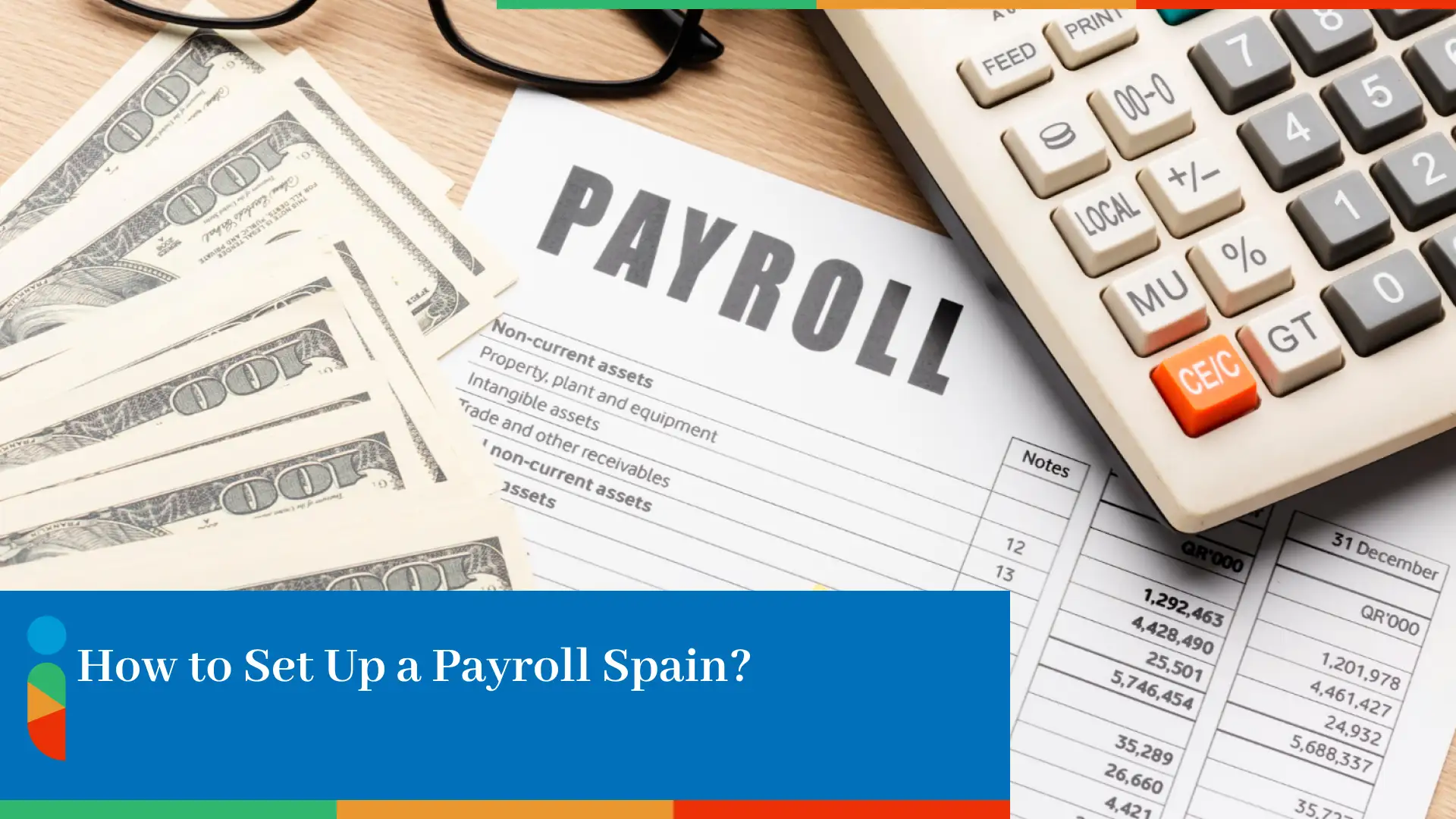To ensure that your employees obtain payment on time and that you remain in compliance with Spanish employment laws as the Estatuto de los Trabajadores (worker’s statute), the Spanish Constitution, the European Union, and union contracts state, you should take certain steps if you want to set up a payroll in Spain for the first time.
In this article, we will be talking about how to set up a payroll in Spain. Here, we will take a closer look at Spain’s payroll system, covering employment regulations, employee registration, and taxation. Therefore, this will be great if you are thinking about starting a business in the area or expanding through the region.
Understanding Payroll Spain
The Spanish administration actively encourages foreign investment because it is crucial to the country’s economy. Spain has a young, highly skilled labor force, and its labor expenses are generally low. The region serves as an excellent entry point to the expanding markets of Latin America and the EMEA region.
Spain is the second-largest and most significant international investor in Latin America after the United States. With a vast network of highways, railways, rapid transport, air routes, ports, and a central time zone position that is in perfect position between Western and Eastern markets, Spain has great transportation connections to the rest of the globe.
Processing payroll Spain can be very difficult for foreign firms. In fact, the 2021 World Payroll Complexity Index places Spain among the top 5 nations with the most complicated payroll systems. There are several causes for this.
For starters, collective bargaining agreements, which, in some situations, also have an immediate effect on payroll processing, have a significant influence on work relationships in Spain. The payroll department may also struggle due to the differing tax laws that apply to residents and non-residents.
Overview of Payroll Management in Spain
No organization or business can prevent payroll administration. Even despite the fact that laws and regulations range from nation to country. Additionally, how well it is happens has a significant impact on the company’s efficient running.
However, what is payroll management in Spain? Efficient payroll processes involucrate the calculation and compensation of employee salaries. Consequently, managing the payment of Individual Income Tax (IRPF) to the Spanish tax authority (Agencia Tributaria), the social security reimbursements, and all the leaves applicable to employees within the company.
When establishing the working conditions and salary in Spain, employers must take particular attention to collective agreements. These are in place between the representatives of workers and the businesses. These union contracts have a strong impact on employee regulations and also on the way that the payroll structure is.
Union agreements regulate every type of employment. This, with a specific wage range that goes according to the industry, set hourly or monthly working hours, holidays, and more. Furthermore, these contracts often apply to certain sectors in specific geographic areas.
If creating a payroll is a complicated process for businesses, it is undoubtedly difficult for employees to properly comprehend all the parts of their compensation. A payroll is really a financial document that businesses create that details the salary of its employees as well as any deductions and bonuses they may obtain. It is not simply a piece of paper, either. A payroll is a legal document that affects how the company runs by the law. It includes mandatory areas for each employee that appear in the company’s financial records.
It is crucial to understand the regulations of Spain. The Ministry of Labor and Social Security oversee them. Consequently, you will calculate and produce a payroll there.
Importance of Proper Payroll Setup in Spain
You must set up a company entity in Spain if you want to work with and pay Spanish workers. You can accomplish this via an employer of record (EOR) or by setting up your own local entity.
EORs give you the option to hire and pay people via their organization. Your taxes are paid to the Spanish Tax Administration Authority (also known as the Agencia Estatal de la Administración Tributaria or the Agencia Tributaria), which is calculated and withheld by the EOR.
EORs are frequently in use by businesses that are expanding to Spain or other nations. This, to handle payroll, manage benefits, and deal with global compliance difficulties.
Why use an EOR service instead of creating your own EOR? Well, depending on how you apply, EORs can take up to 6 months to establish. Most small businesses lack the time and money necessary to deal with this administrative burden. That’s where the employer of record advantages come in – outsourcing lets you skip the setup hassle and focus on growth.
Payroll management is critical for businesses for a variety of reasons. It mostly assists in ensuring that workers obtain proper and on time payment. This is crucial for compliance with labor rules as well as morale. Additionally, an efficient payroll system can aid firms in better budgeting and spending tracking. Overall, managing payroll is an essential component of operating any organization. A well-organized system takes time to implement, but it will pay dividends in the future in terms of compliance and efficiency.
Payroll is a time-consuming and labor-intensive process that comprises hundreds of manual tasks. Payroll must also happen on a consistent basis, at least on a monthly basis. Therefore, it is frequently required to allocate more resources in order to guarantee the exactitude and reliability of payroll calculations.
Legal and Regulatory Considerations
Employers in Spain have to sign up with the local taxes and social security agencies before they may begin processing payroll. Employers obtain a company tax number, which is essential for processing payroll and withholding revenue tax from wages and salaries, as well as a Contribution Account Code (CCC), which is necessary for social security registration, after joining the Spanish Tax Authority (Agencia Estatal de la Administración Tributaria).
Before the first employee begins working for the company, the Country’s Social Security Agency (Seguridad Social) registration must be complete. Companies must have their Contribution Account Code to be able to do this. Online registration with the Social Insurance Administration is the norm. Additionally, employers have to purchase liability coverage for the workplace.
Along with a social security number (NAF), employees also require a personal tax ID to file their taxes. An online hiring statement must be in place to notify the authorities about new hires. Although it is technically possible to employ foreigners as employees in Spain, all employers must register with the aforementioned agencies in order to meet their withholding and pay requirements for social security and income taxes.
To pay local tax and social insurance agencies, you need a local bank account. There aren’t many Spanish banks available for selection.
Employment Laws and Regulations in Spain
In Spain, employment law is extremely strict. Spain has a strong labor law known as the Employment Act, which is frequently inspected by the government. As a result, it is crucial for businesses operating in Spain to adhere to the correct hiring and firing practices and rules.
- Minimum wage: The nation’s minimum wage is set by the government. In recent years, the employee’s pay has been increasing, now is about €1108 per month (about £990 or $1250).
- Severance pay: Employees who are fired are entitled to 20 days of pay for every year they worked, for a total of 12 monthly payments. This entitlement to severance pay is also applicable in cases when an employee refuses to agree to a material modification of their employment agreement or a protracted move of their work location.
- Working hours: Spain’s standard working hours are from 9:00 to 17:30, and employees are entitled to a breather of a minimum 30 minutes throughout the day. In Spain, employees have a right to work a total of eighty hours of overtime a year, but there are several exceptions in specific fields and circumstances.
- Holidays: An employee’s right to time off on a national holiday. Every year, Spain celebrates 10 national holidays in addition to numerous regional holidays. Each year, a full-time worker is granted 22 paid vacation days, or 30 calendar days. Spain’s labor regulations permit them to take it at once or in increments of their choosing, but a minimum of one vacation time must be 2 weeks long.
- Parental leave: When a newborn is present, both men and women get access to a 16-week leave. The duration extends to 18 weeks for twins and 20 weeks for triplets. For kids with disabilities, there is an additional two weeks.
Tax Obligations for Employers in Spain
Employers have to deduct income tax from worker paychecks and report the deducted amounts to the appropriate authorities. The Agencia Estatal de la Administración Tributaria is the national competent authority. Local governments that are distinct from one another handle regional taxes.
Monthly income tax withholding is necessary from all wages and salaries. The employer must submit the withheld funds to the taxing body on a variety of schedules. In the event that the business’s yearly revenue surpasses EUR 6,010,121.04, payments must happen once each month. The 20th of the next month is the due date for payments in this instance. In all other circumstances, income tax is due on the 20th of April, the 20th of July, the 20th of October, and the 20th of January for the prior quarter. There are penalties for late payments.
Each quarter or month, a separate tax statement must be submitted, detailing the total sums paid to staff and the income tax deducted from paychecks. There are two separate forms—one for employees who are residents (111 Form) and another for those who are not (216 Form). Both forms must be electronically submitted. The yearly income tax declarations, which are due on January 31 of the following year (190 Form for resident workers and 296 File for non-resident employees), are the same.
If an employee’s yearly salary exceeds EUR 22,000, they must submit an individual tax return. They obtain a yearly tax certificate outlining the entire amount of tax deducted from their salary and wages over the tax year in order to achieve this. Between May 2 and June 30, the following year, returns must be complete. A combined tax return may be filed by spouses.
In Spain, employers are responsible for both making individual contributions and deducting social security payments from their employees’ monthly salaries. As of 2022, the employer portion of the social security payment is at a stationary rate of 29.9%. This include contributions to the unemployment fund, the salaries guarantee fund, and the job training fund in addition to payments to the general social security funds.
If you want to hire an EOR to set up a payroll Spain, we are your best alternative! With Iberia EOR you can expand your business to Spain and enjoy the benefits of this region. We can quickly take over your payroll management in Spain. Get in touch with us and quickly set up a payroll in Spain.





